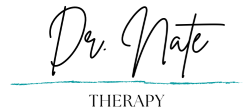ADHD & Oversharing: Why It Happens & How to Manage It
Have you ever walked away from a conversation and thought, ‘Why did I say all that?’ Maybe you revealed way too much about your personal life, overshared an embarrassing story, or spilled details that, in hindsight, weren’t necessary. If you have ADHD, this might feel like a regular occurrence.
So, why does oversharing seem to be a defining trait of ADHD? And more importantly, how can you manage it without feeling like you’re constantly censoring yourself? Let’s explore.
Why Do People with ADHD Overshare?
There’s no single answer, but ADHD brains are wired in ways that make oversharing more likely. Here are some possible reasons:
1. We Get Bored with Small Talk
Small talk can feel excruciatingly dull when you have ADHD. Our brains crave stimulation, and mundane conversations don’t provide that dopamine hit we’re subconsciously seeking. So, what do we do? We skip the boring pleasantries and jump straight into deep, unfiltered, and sometimes wildly personal topics.
What starts as a casual “Hey, how are you?” might turn into an in-depth story about a bad breakup, a weird medical issue, or an existential crisis. We don’t mean to make people uncomfortable—we’re just chasing that interesting, real connection instead of surface-level chatter.
2. The ADHD Brain Lacks a Social Filter
The prefrontal cortex—the part of the brain responsible for impulse control and self-regulation—is underactive in ADHD. That means we often speak before we think, blurting out thoughts without assessing whether they’re appropriate for the situation.
It’s not that we don’t know what’s “socially acceptable”—we just don’t always have that internal pause button that neurotypical people do. The thought pops up, and boom, it’s out of our mouths before we can stop it.
3. We Love Strong Reactions
Whether it’s making someone laugh, surprising them, or even shocking them a little, people with ADHD tend to thrive on big reactions. Oversharing sometimes feels like a way to create an instant connection—we lay it all out there and hope the other person responds in kind.
The downside? Sometimes, we share too much, too fast, and it overwhelms people who aren’t used to that level of openness.
4. ADHD Might Have Some Overlap with Autism
There’s growing discussion in the neurodivergent community about whether ADHD and autism exist on a spectrum. While they are separate conditions, they do share some traits—one of which is difficulty gauging social appropriacy.
If you have ADHD and often feel unsure about what’s too much to share, or if you struggle to read subtle social cues, you’re not alone. The line between “oversharing” and “authentic conversation” can feel very blurry.
5. We Feel Like Our Lives Are Boring
ADHD comes with dopamine-seeking behavior, which means we sometimes view our own lives as dull unless we’re doing something exciting. This can make us embellish stories, add extra drama, or dive into oversharing just to make a conversation feel more interesting.
In reality, your life isn’t boring—it just feels that way because your brain is constantly searching for novelty and stimulation.
How to Manage Oversharing Without Feeling Like You’re Muzzling Yourself
So, how can you keep from oversharing in a way that might be regrettable—without feeling like you have to “bite your tongue off” every time you speak? Here are some practical strategies:
1. Practice the “One Second Rule”
Before sharing something personal, pause for one second and ask yourself:
- Is this something I’d be comfortable with a stranger knowing?
- Would I be okay with this being repeated?
- Does this person need to know this information?
If the answer is “no” to any of these, consider holding back or rephrasing what you’re about to say.
2. Use the Onion ‘Layers of Trust’ Approach
Not everyone needs full access to your life story. Think of trust as a series of layers:
- Outer Circle (Acquaintances & Coworkers) → Keep it light, surface-level, and positive.
- Middle Circle (Friends & Close Colleagues) → Some personal stories, but with boundaries.
- Inner Circle (Trusted Friends & Family) → The real, unfiltered stuff.
Before sharing, consider which “layer” the person belongs to and adjust accordingly.
3. Channel Your Need for Connection in Other Ways
If oversharing is how you bond, find other ways to create deep connections, like:
- Asking thoughtful questions
- Listening actively
- Engaging in shared experiences
This lets you build strong relationships without feeling like you have to lay everything out on the table immediately.
4. Reframe “Small Talk” as a Challenge
Instead of dreading small talk, view it as an opportunity to practice self-restraint and observation. Try setting small challenges for yourself:
- Can I make it through this interaction without revealing anything deeply personal?
- Can I steer the conversation toward the other person instead?
Think of it as a social experiment—it can be fun in its own way!
5. Give Yourself a ‘Safe Space’ to Overshare
If you feel like you’re bursting with thoughts and stories, find a safe outlet where you can express yourself freely:
- A journal
- A private voice memo
- A trusted friend who loves deep conversations
Having a space to let it all out can make it easier to self-regulate in social settings.
6. Forgive Yourself When You Overshare
Here’s the thing—you will overshare sometimes. And that’s okay.
Instead of beating yourself up, practice self-compassion:
- “That moment doesn’t define me.”
- “I shared because I wanted connection, and that’s human.”
- “I can learn from this and do better next time.”
Final Thoughts: Embrace Your ADHD, with Boundaries
Oversharing is part of the authenticity and enthusiasm that make ADHD folks so fun and engaging. The goal isn’t to become robotically reserved—it’s to find a balance where you can be yourself without feeling exposed or vulnerable afterward.
By practicing mindfulness, trust layering, and self-awareness, you can navigate conversations with confidence while still keeping your sense of spontaneity and charm.
And hey—if you overshare once in a while? It just means you’re human. 💙
If you’re struggling with ADHD-related social challenges, I can help. Book a session with me and let’s work on strategies that make social interactions easier and more fulfilling.

